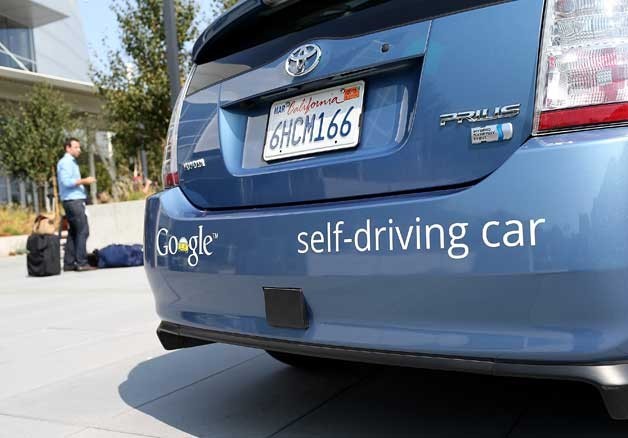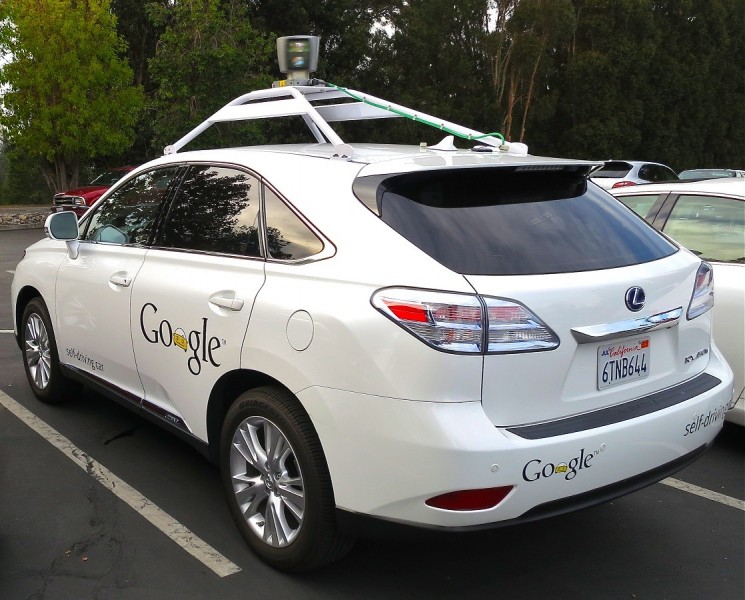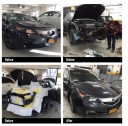Google Self-Driving Cars Get Into 11 Accidents

Are Self-Driving Cars at Fault for Accidents?
At Ultimate Auto Body in Bedford Hills, NY, we don’t know how soon self-driving cars will become prevalent on our roads and highways, but when they do, you can rest assured that we’d love the opportunity to fix them when the time is finally here. For people that think that self-driving cars will be accident-free, think again. But, the goal of autonomous vehicles is that hopefully the computers operating the self-driving cars will make fewer mistakes than human drivers will. In fact, the results of a recent study prove that Google self-driving cars are safer than their human-operated counterparts right now.
Who’s More Accident-Prone: Car or Human?
Google recently announced that its self-driving cars have been involved in a series of minor accidents over the six years since the project began, but the company claims that their vehicles were not at fault in any of these mishaps. After logging 1.7 million miles, Google stated in a recent blog post that their autonomous vehicles have been involved in accidents resulting in only light damages, and no injuries during those 1.7 million miles of autonomous and manual driving. They also asserted that all of the accidents were caused by the humans—not the cars.
 This One Goes to 11
This One Goes to 11
Most of the 11 accidents were caused by other drivers who rear-ended Google's self-driving cars, while a few others were sideswiped when another vehicle rolled through a stop sign. "Not only are we developing a good understanding of minor accident rates on suburban streets, we've also identified patterns of driver behavior (lane-drifting, red-light running) that are leading indicators of significant collisions," a Google press release explained. "Those behaviors don't ever show up in official statistics, but they create dangerous situations for everyone around them."
Even if all of the 11 reported accidents were caused by autonomous vehicles themselves, that’s still better than human drivers in this country. Figuring that the average American gets into a car accident every decade or so and drives 15,000 miles annually—self-driving cars are slightly below the national average and thereby safer at this point in time.
Google’s numbers are solid and no one doubts them. If you have driven in a major U.S. city recently, you know that human beings are accident-prone and that’s why body shops and insurance companies are still alive and well. So, if the self-driving cars aren’t directly responsible for any of the 11 accidents reported, than that is very impressive, and a positive sign about the future of autonomous travel.
Get Ready for 2030, Bedford Hills!
In conclusion, self-driving cars are going to be safer than human drivers ultimately, but they still need work and development before becoming an integral part of our lives. At Ultimate Auto Body, we want to be at the cutting-edge of the collision repair industry, so in 2030 when autonomous cars will be our everyday drivers, we will undoubtedly be there to fix the accidents—whomever or whatever is at fault!















 This One Goes to 11
This One Goes to 11
Social